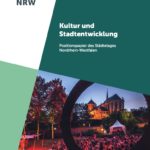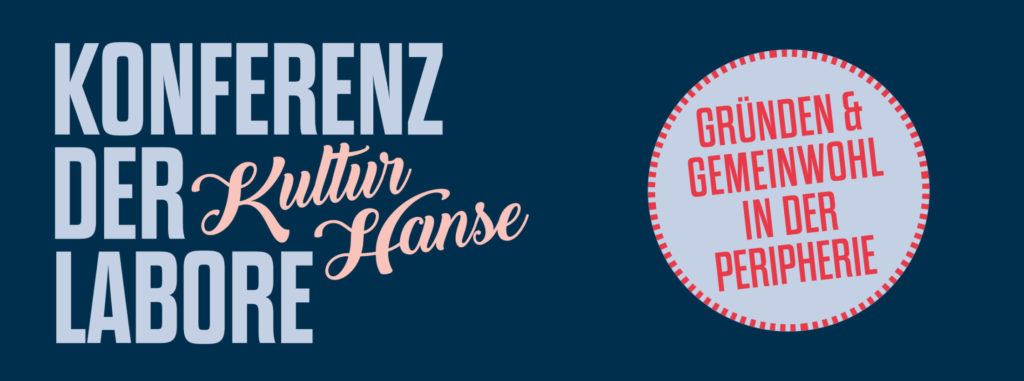
Konferenz der Kulturhanse-Labore
Programm
Am 15. Mai 2025 sticht die Kulturhanse in Chemnitz, der diesjährigen Kulturhauptstadt Europas, wieder in See. Als Verbund von Gemeinwohllaboren jenseits großer Städte laden wir Sie in die Stadtwirtschaft zu der zweiten Kulturhanse-Konferenz ein. Wir freuen uns, wenn Sie mit uns in See stechen.
Wir achten bei der Organisation der Veranstaltung auf Barrierearmut: Die gesamte Location ist rollstuhlgerecht zugänglich. Geben Sie gern bei der Anmeldung an, ob Sie eine Assistenz brauchen. Einzelne Teile des Programms werden in englisch sein. Dafür bieten wir Flüsterübersetzungen an. Beim Catering legen wir Wert auf vegane Mahlzeiten sowie regional und biologisch produzierte Produkte.

Ablauf & Programm
9.30 Uhr Einschiffen und ein Getränk angeln
10.00 Uhr Alle an Deck. Begrüßung und Kulturhanse kennenlernen
10.30 Uhr Segel setzen. Praxisreisen zu sechs nationalen und internationalen Hubs
12.00 Uhr Mittag in der Kajüte
13.00 Uhr Die Kapitäne stellen das Positionspapier der Kulturhanse vor
13.30 Uhr Workshops im Maschinenraum
15.30 Uhr Kuchen in der Kajüte
15.45 Uhr Gemeinsam Schätze heben
17.00 Uhr Auslaufen und Ende
Einladung am Vorabend
Rundgang mit der Dezentrale: „Gemeinschaftlich Leben und Arbeiten am Chemnitzer Brühl“
Das Chemnitzer Brühlviertel ist eine klassische Gründerzeitvorstadt, die in den 1970er und 1980er Jahren teilweise Funktionen der Innenstadt übernommen hat und nach zwei Jahrzehnten des Niedergangs ab der Wende in den letzten Jahren zu einer Art “Szeneviertel” bzw. Kreativ- und Studierendenquartier unweit der TU Chemnitz entwickelt werden soll. Seit etwa 2010 entstand links und rechts der Einkaufstraße Brühl eine Reihe von gemeinschaftlichen Wohnprojekten und Arbeitsorten der Kreativwirtschaft, die oft als Vereine oder kleine Genossenschaften organisiert sind. Dazu zählen etwa die Brühlpioniere eG, die 7300³ eG mit der Galerie und Agentur Rebel Art, das Projekthaus Brühl 71 und das Musikkombinatin der ehemalige Karl-Liebknecht-Schule.
Wir werden den Abend ab ca. 20 Uhr gemeinsam im syrischen Bistro Yasmin, Straße der Nationen 35a, ausklingen lassen. Falls ihr also etwas später nach Chemnitz kommt, kommt gerne noch da vorbei.
Zur Einstimmung auf den Rundgang schaut doch mal in diesen aktuellen Beitrag von “Volle Kanne” auf dem ZDF vom 12. März 2025 (ab Min.30):https://www.zdf.de/gesellschaft/volle-kanne/volle-kanne-vom-12-maerz-2025-mit-ben-muenchow-100.html
Segel setzen
Praxisreisen
Welche Gründungsideen tragen zu einem lebenswerteren Umfeld bei?
Wie sieht ein gemeinwohlorientiertes Ökosystem aus und wie baut man es auf?
Wie kann man den Leerstand zur Attraktivierung des eigenen Orts einsetzen?
Wie müssen Orte beschaffen sein, damit eine niedrigschwellige Begegnung und ein Austausch wieder miteinander möglich wird? Wie schafft man es, die schwindende aktive Zivilgesellschaft zu stärken?
Wie schafft man es Rückenwind aus einer möglichst großen Allianz verschiedener Anteilseigner*innen aus Politik, Wirtschaft, Verwaltung und Institutionen zu mobilisieren?
Wir haben sechs beispielgebende nationale und internationale Hubs gefunden, die ihre lokale Antwort auf diese Fragen gefunden haben.
. Sie gehen auf Reise zu zwei von sechs beispielgebenden nationalen und internationalen Hubs, die eines der folgenden Themen aus ihrer einzigartigen, lokalen Sicht behandeln. Die Themen zahlen auch auf die Schwerpunkte unseres Positionspapiers ein, dessen Stand wir mit Ihnen im Laufe der Konferenz diskutieren wollen. Aus den Schwerpunkten des Positionspapiers ergeben sich diese spannenden Themen für die Praxisreisen:
Gemeinwohlorientiertes Gründen und neues Wirtschaften, Lokale und regionale Ökosysteme gemeinwohlorientiert aufbauen, Leerstand als Turning Point, Gemeinsam lokale und regionale Herausforderungen an niedrigschwelligen Begegnungsorten angehen, Empowerment für eine aktive Bürgerschaft und Zivilgesellschaft, Ressortübergreifende Unterstützung
Gründungsgarage Chemnitz (Kulturhanse)
Vom Machen zum Gründen. Die Gründungsgarage ist Antreiberin für soziales Unternehmertum und will durch kreative und kollaborative Impulse den Dialog dazu anregen. Wir möchten den Macher*innengeist der Region Chemnitz in Gründungsenergie verwandeln und Menschen auf ihrem Weg zu einem/einer Sozialunternehmer*in begleiten.
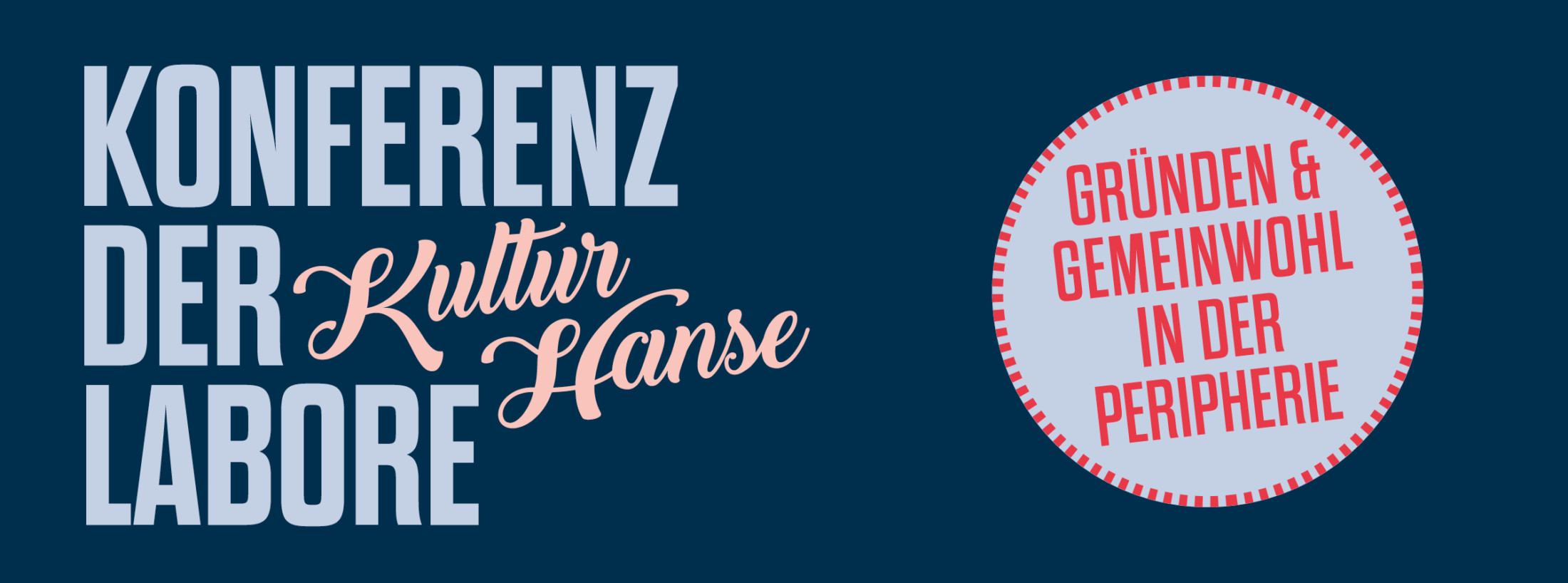
#Schwerpunkt 1: Lokale und regionale Ökosysteme gemeinwohlorientiert aufbauen
Wir treiben ein Gemeinwohl-Ökosystem in Chemnitz voran! Mit Stipendien-Programm, Events und starke Netzwerke unterstützen wir Social Entrepreneurs, vernetzen sie mit Wirtschaft, Wissenschaft sowie Gesellschaft und tragen ihre Ideen in die Welt.
#Schwerpunkt 2: Empowerment für eine aktive Bürgerschaft und Zivilgesellschaft
Mit partizipativen Formaten wie Podiumsdiskussionen, Workshops und Netzwerktreffen stärken wir die Zivilgesellschaft in Chemnitz! Wir bringen Engagierte zusammen, fördern Austausch und machen ihr Engagement sichtbar.
Angerwerk Angermünde (Kulturhanse)
Das AngerWERK ist ein Zentrum für Gründung, Transformation und Engagement in Angermünde. Wir unterstützen gemeinwohlorientiertes Unternehmertum und alternative Wirtschaftsansätze, vernetzen Akteure und bieten Räume, Beratung und Veranstaltungen für soziale Innovationen.

#Schwerpunkt 1: Gemeinwohlorientiertes Gründen und neues Wirtschaften
Wir fördern gemeinwohlorientierte Gründungen und nachhaltiges Wirtschaften. Unternehmerisches Denken und Handeln sehen wir auch an der Schnittstelle von Wirtschaft und Gemeinwohl als Chance und Innovationstreiber für die Region. Zukunftsfähige Ideen erhalten bei uns Raum und Unterstützung.
#Schwerpunkt 2: Ressortübergreifende Unterstützung
Soziale Innovationen für ein gutes Leben vor Ort entstehen nicht allein – sie brauchen gemeinsames Engagement. Wir verbinden Akteure aus Wirtschaft, Zivilgesellschaft und Verwaltung, um Lösungen für gesellschaftliche Herausforderungen zu entwickeln und sie auf den Weg zu bringen.
Silicon Vilstal
Silicon Vilstal ist eine Initiative aus Niederbayern, die gesellschaftliche Innovationen im ländlichen Raum fördert – mit Festivals, Reallaboren, Bildungsformaten und kreativen Aktionen, lokal verwurzelt und international vernetzt. Bild: Matthias Ammer
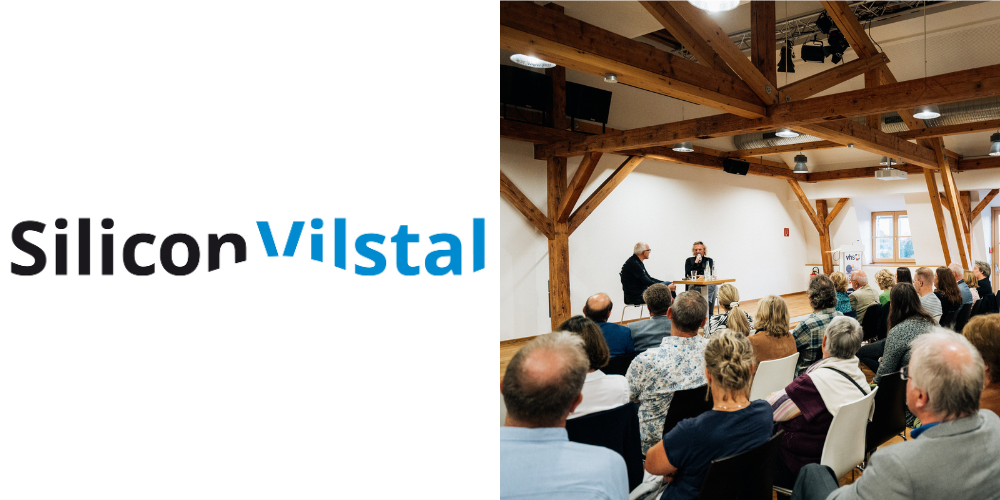
#Schwerpunkt 1: Gemeinwohlorientiertes Gründen und neues Wirtschaften
Wir fördern gemeinwohlorientiertes Unternehmertum mit Praxisformaten wie Hackathons, Reallaboren und einem starken Netzwerk aus Startups, Kommunen und Kreativen.
#Schwerpunkt 2: Lokale und regionale Ökosysteme gemeinwohlorientiert aufbauen
Silicon Vilstal vernetzt regionale und internationale Akteure, um gemeinsam gesellschaftliche Innovationen zu erproben und strukturell zu verankern – vor Ort und europaweit.
Kultur-Nische Salzwedel
So vielfältig wie die Sammeltassen im Küchenschrank: Trotz aller Unterschiede setzen sich die Menschen in der Kultur-Nische immer wieder miteinander an einen Tisch und suchen Gemeinsamkeiten. Die Kultur-Nische ist ein denkmalgeschütztes Häuserensemble in Salzwedel, um dessen Sanierung und Instandhaltung sich seit 2009 ein gleichnamiger Verein mit rund 40 Mitgliedern kümmert.
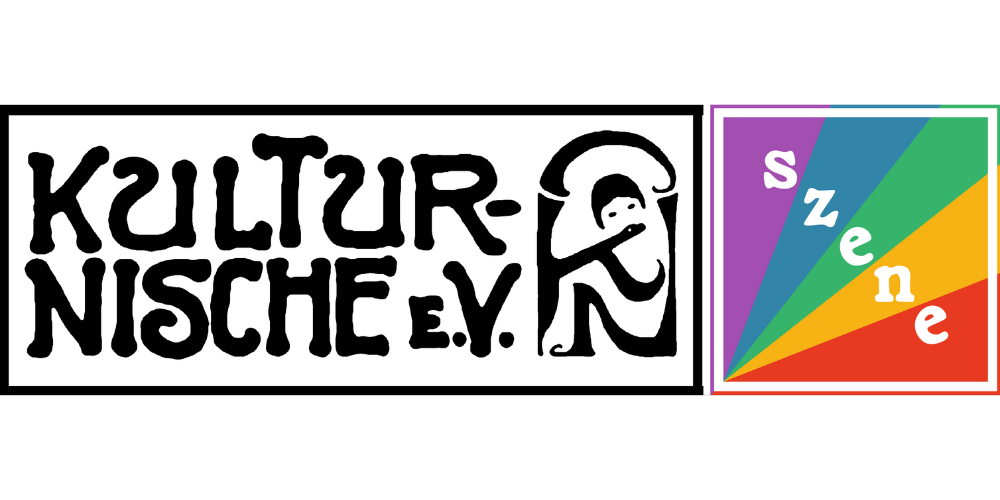
#Schwerpunkt 1: Gemeinsam lokale und regionale Herausforderungen an niedrigschwelligen Begegnungsorten angehen
Im Februar 2009 als klassischer Denkmalpflegeverein gegründet, hat sich die Kultur-Nische in den letzten 16 Jahren zu einem wichtigen Dritten Ort in der altmärkischen Stadt gemausert, in dem Menschen verschiedener Herkunft, verschiedenenen Alters, aus verschiedenen Milieus und mit unterschiedlichen Lebensentwürfen aufeinandertreffen.
#Schwerpunkt 2: Empowerment für eine aktive Bürgerschaft und Zivilgesellschaft
Dass der Verein anderen Initiativen und Gruppen Arbeits-, Besprechungs- oder Versammlungsräume zur Verfügung stellt, steht als ein weiterer Vereinszweck explizit in der Satzung.
STRAZE Greifswald
Die STRAZE ist ein besonderer Ort in Vorpommern. Ein Freiraum, wo vieles möglich ist, wofür lange kein Platz war: rauschende Feste im historischen Ballsaal, Workshops, Theater, Programmkino, politische Bildung, Musik, handwerkliches Ausprobieren, fairer Kaffee und Unterstützung bei tausend weiteren Ideen. Bild: Thorsten Wagner
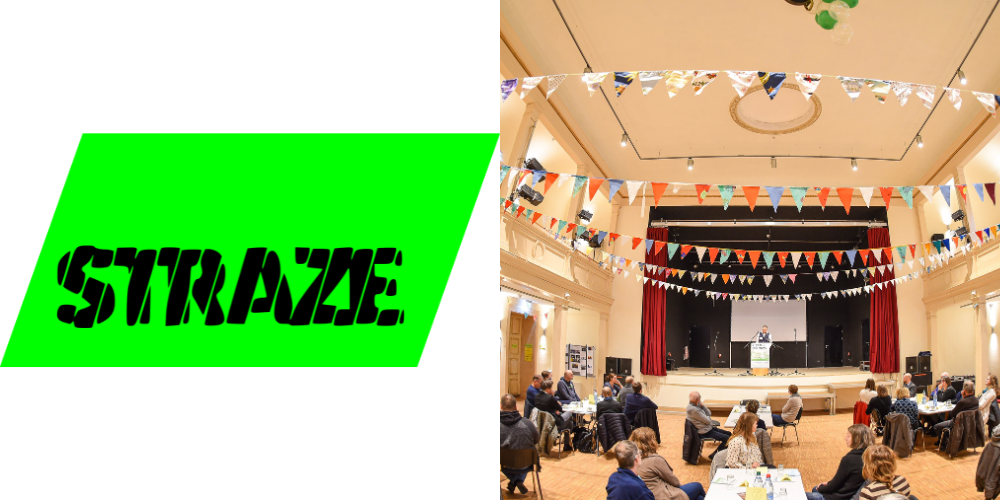
#Schwerpunkt 1: Leerstand als Turning Point
Die STRAZE befindet sich in einem historischen Gebäude, das 2007 ziemlich verfallen war und zum Verkauf stand. Jahrelanges Engagement sorgte dafür, dass die STRAZE 2013 in gemeinnützige Hände überging und als Denkmal erhalten blieb.
#Schwerpunkt 2: Gemeinsam lokale und regionale Herausforderungen an niedrigschwelligen Begegnungsorten angehen
Die STRAZE bietet Raum für Kultur, Engagement und Begegnung für alle Menschen. Ob Naturschutz, Bildung, Kultur oder Soziales – 30 zivilgesellschaftliche Gruppen sind regelmäßig hier. Es gibt offene Werkstätten, regelmäßige Treffs und ein Café.
Appenninol'Hub Italien
Spezialisierter und weit verbreiteter Inkubator zur Begleitung von Gemeinschaftsentwicklung, Humankapital und neuem Unternehmertum in den inneren und fragilen Gebieten des Landes
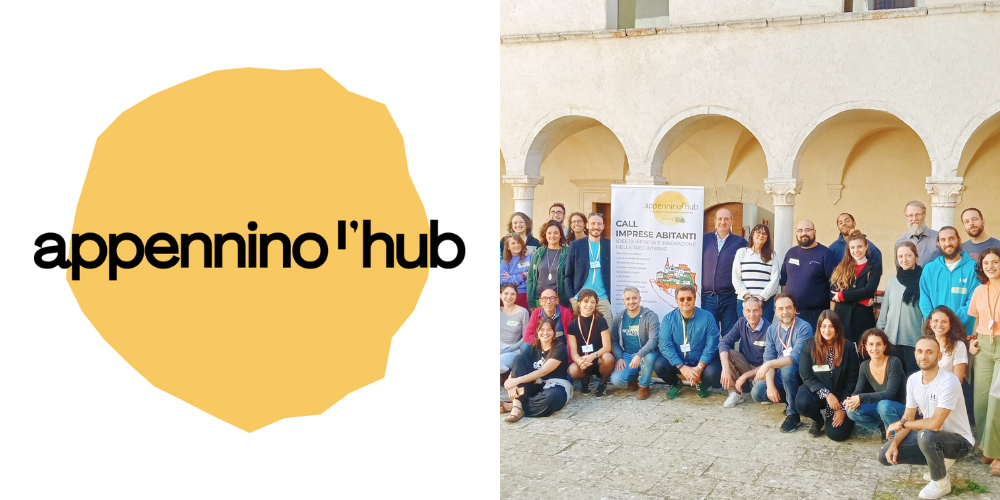
#Schwerpunkt 1: Leerstand als Turning Point
Wir stärken Gemeinden und Sozialunternehmen in der Peripherie Italiens, indem wir die Erneuerung, Innovation und nachhaltige lokale Entwicklung fördern.
#Schwerpunkt 2: Ressortübergreifende Unterstützung
Wir fördern die Verbesserung der lokalen unternehmerischen Fähigkeiten und die Zusammenarbeit mit 100 Partnern und Investoren in unserer Region und in ganz Italien, um langfristige positive Auswirkungen auf Wirtschaft und Gesellschaft zu gewährleisten.
Segel setzen
Workshops im Maschinenraum
Insgesamt 11 Workshops (2x Slots in 6 Räumen) stehen am Nachmittag für die Diskussion bereit.
- Das Kulturhanse-Positionspapier kritisch geprüft
- Wie lässt sich das Kulturhanse-Positionspapier strategisch erfolgreich aufgleisen?
- Handlungs(un)fähigkeit kleiner Städte & Dörfer - Was muss passieren, damit etwas passiert?
- Threats of de-democratisation for social renewal
- Fostering new local economies in peripheral areas
- Gemeinschaftlich Wohnen und Arbeiten auf dem Land
- Vernetzung für Impulsorte
- Wirtschaften anders denken – Einführung in die Gemeinwohl-Bilanz
- Finanzierung sozialer Innovationen
- Theorie trifft auf Praxis - Was Makerhubs wirklich brauchen und wie wir sie dabei unterstützen können
- Seemannsgarn in der Kombüse
alle Schwerpunkte
Workshop: Das Kulturhanse-Positionspapier kritisch geprüft
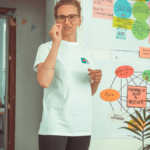
Das Positionspapier enthält Situationsbeschreibungen von Begegnungsorten und sozial-innovativen Laboren im ländlichen Ostdeutschland. Zudem formulieren wir auf Grundlage der Ergebnisse der strategischen Evaluation der Kulturhanse Vorschläge, wie deren Rahmenbedingungen verbessert werden können. Im Workshop unterziehen wir das Papier einer kritischen Prüfung: Gibt es empirische Evidenz für die Beschreibungen? Kann die Umsetzung der Forderungen zu Verbesserungen führen?
Workshopleiter*innen: Juliane Döschner, Plattform e.V. & Jennifer Hansen
Juliane Döschner: Als Teil von Plattform e.V. sticht Juliane Döschner mit der Kulturhanse seit 2018 in See. Zunächst als Gründungsprogramm für sozialunternehmerische Impulsorte jenseits der Metropolen. Über die Jahre entstand ein Verbund aus Kulturhanse-Laboren in Brandenburg, Sachsen, Sachsen-Anhalt und Thüringen, die sich nun mit dem Positionspapier aufmachen, die Gelingensbedingungen zur Schaffung mehr solcher Orte zu verbessern.
sozialunternehmerische Impulsorte jenseits der Metropolen. Über die Jahre entstand ein Verbund aus Kulturhanse-Laboren in Brandenburg, Sachsen, Sachsen-Anhalt und Thüringen, die sich nun mit dem Positionspapier aufmachen, die Gelingensbedingungen zur Schaffung mehr solcher Orte zu verbessern.
Jennifer Hansen: Als systemische Organisations- und Teamentwicklerin begleitet Jennifer Hansen Menschen, Teams, Organisationen und Netzwerke auf ihren Entwicklungswegen. Im Auftrag der Drosos Stiftung hat sie von Dezember 2024 bis April 2025 die strategische Evaluierung der Kulturhanse geleitet.
alle Schwerpunkte
Kollegiale Beratung: Wie lässt sich das Kulturhanse-Positionspapier strategisch erfolgreich aufgleisen?
In dieser kollegialen Beratung werden wir als Kulurhansler selbst zu Fallgeber*innen. Und sind Sie die Expert*innen, die uns zur Frage beraten: Welche Strategien ist für das Positionspapier die geeignetste? Mit diskutiert Babara Foerster, Verfasserin des Positionspapiers: Kultur und Stadtentwicklung Positionspapier des Städtetages Nordrhein-Westfalen. Darin spricht sie sich für Kultur und Dritte Orte als essenziellen Bestandteil der Stadtentwicklung aus.
Fallgeberin: Juliane Döschner, Plattform e.V. Moderatorin: Jennifer Hansen
Als Teil von Plattform sticht Juliane Döschner seit 2018 mit der Kulturhanse in See. Zunächst als Gründungsprogramm für sozialunternehmerische Impulsorte jenseits der Metropolen. Über die Jahre entstand ein Verbund aus Kulturhanse-Laboren in Brandenburg, Sachsen, Sachsen-Anhalt und Thüringen, die sich nun mit dem Positionspapier aufmachen, die Gelingensbedingungen zur Schaffung mehr solcher Orte zu verbessern. Jennifer Hansen, die Autorin der strategischen Evaluation der Kulturhanse, wird die Kollegiale Beratung beraten.
Schwerpunkt #Empowerment für eine aktive Bürgerschaft und Zivilgesellschaft, Ressortübergreifende Unterstützung
Workshop: Handlungs(un)fähigkeit kleiner Städte & Dörfer – Was muss passieren, damit etwas passiert?
Kleine Kommunen gerade im ländlichen Raum stemmen immer mehr Aufgaben mit immer weniger Mitteln. Das wirkt sich unmittelbar auf die Lebensqualität vor Ort aus: Infrastrukturen dünnen aus, soziale Angebote brechen weg, Frustration und Ohnmachtsgefühle, Scham und Wut nehmen zu. Zuerst beschreiben wir die strukturellen Ursachen und Folgen für unsere Demokratie. Dann schauen wir zusammen, wie Kommunen und Zivilgesellschaft wieder stärker über ihre eigenen Belange selbst entscheiden und handeln können.
Workshopleitung: Prof.in Dr. phil. Katrin Großmann & Martin Arnold-Schaarschmidt

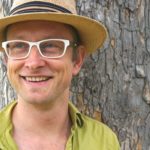 Prof. Dr. Katrin Großmann lehrt Stadt- und Raumsoziologie an der FH Erfurt und leitet das Forschungskollektiv Peripherie und Zentrum. Ihre Forschung richtet sich auf soziale Konflikte und Zuwanderung, Energiegerechtigkeit, schrumpfende Städte und Kleinstädte.
Prof. Dr. Katrin Großmann lehrt Stadt- und Raumsoziologie an der FH Erfurt und leitet das Forschungskollektiv Peripherie und Zentrum. Ihre Forschung richtet sich auf soziale Konflikte und Zuwanderung, Energiegerechtigkeit, schrumpfende Städte und Kleinstädte.
Martin Arnold-Schaarschmidt ist Mit-Gründer des Plattform e.V. und der Kulturhanse. Als Moderator, Vernetzer und Organisationsberater ist er viel in ländlichen Räumen unterwegs.
Schwerpunkte #Gemeinwohlorientiertes Gründen und neues Wirtschaften, Gemeinwohlorientierte Ökosysteme
Threats of de-democratisation for social renewal
Our workshop first presents the pathway of Hungarian de-democratisation calling attention to social and political pitfalls and risks that contributed to the strengthening of right-wing, conservative discourses and policies in Hungary. In the second part of our workshop, we discuss these processes through the first-hand experiences of one prominent Hungarian NGO engaged in social innovation. Impact Hub Budapest provides a home for a diverse community and supports positive social change. We are change makers as we work for a better world, bridging ideas building impact. But how it can be done? We show some practical cases of how we can empower youth and women, even in the country side, in rural areas.
Workshopleader: Judit Keller & Beatrix Bedo
 Judit Keller, PhD, sociologist, Senior Research Fellow at the HUN-REN Centre for Economic and Regional Studies in Budapest and project leader at the Zentrum für Soziale Innovation (ZSI) in Vienna. Her research focuses on social integration, policies related to marginalisation, territorial cohesion amidst state transformation in Central and Eastern Europe.
Judit Keller, PhD, sociologist, Senior Research Fellow at the HUN-REN Centre for Economic and Regional Studies in Budapest and project leader at the Zentrum für Soziale Innovation (ZSI) in Vienna. Her research focuses on social integration, policies related to marginalisation, territorial cohesion amidst state transformation in Central and Eastern Europe.

Beatrix Bedo, the director of the Foundation for Sustainable Entreprises and the CEO, Co-Founder of Impact Hub Budapest. Experienced in leading project based social teams, launching companies, stating risk areas and overviewing the operation of various organizations. Good in combining structured thinking with entrepreneurial ’get-it-done’ approach. She is the lead mentor and trainer in the Foundation of Impact Hub Budapest for several incubations, acceleration programs since 2015.
Schwerpunkte #Ressortübergreifende Unterstützung, Gemeinwohlorientiertes Gründen und neues Wirtschaften, Gemeinwohlorientierte Ökosysteme
Workshop: Fostering new local economies in peripheral areas

How can creative hubs and community-driven spaces foster new local economies in peripheral areas? The workshop will explore practical tools and case studies from Italy, focusing on how local entrepreneurship, regenerated spaces, and social innovation can become drivers for sustainable development and active citizenship.
Workshop leader: Ronnie Garattoni is a mentor and community designer supporting start-ups and new entrepreneurship in fragile and inner areas of Italy. As a co-founder of a Creative Hub, he designs programs for business incubation, local development and social innovation. His work connects emerging talents with local communities, fostering new economies and collaborative ecosystems. He is also a lecturer in entrepreneurship and innovation at universities and business schools.
Schwerpunkt #Gemeinwohlorientiertes Gründen und neues Wirtschaften
Gemeinschaftlich Wohnen und Arbeiten auf dem Land
Wenn Menschen aus der Großstadt in die Suburbia oder “so richtig aufs Land” ziehen oder andere dort bleiben wollen, dann wollen sie dort oft nicht nur gemeinschaftlich leben, sondern oft auch ihren Lebensunterhalt erwirtschaften und sich mit (sozio-)kulturellen Angeboten in die neue Nachbar*innenschaft einbringen. Die Wohnnutzung bildet meist das finanzielle Rückgrat, die andere Nutzungen erst ermöglicht, aber auch zu Konflikten führen kann. In dem Workshop sollen einige dieser Konflikte angesprochen und mögliche Lösungen bei Wahl des passenden Objektes, der geeigneten Rechtsform, der Finanzierung und der allgemeinen Organisation vorgestellt werden.
Workshopleitung: Roman Grabolle (Dezentrale) berät seit 2010 freiberuflich genossenschaftliche und gemeinwohlorientierte Wohn- und Kultur- projekte. Seit 2017 ist er Teil der Leipziger Büro- gemeinschaft „Dienstleistungskombinat MIR“, die u.a. das Programm „Dezentrale – Netz für gemeinschaftliches Wohnen in Sachsen“ durch- führt. Es bietet Beratungen und Informationen für Wohnprojekte, Eigentümer*innen sowie Kommu- nen in den Landkreisen des Freistaats.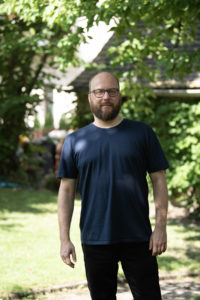
Schwerpunkt #Wie organisiert man eine ressortübergreifende Unterstützung für Orte sozialer Innovation/Leerstandsbelebung/die Förderung sozialunternehmerischen Denkens und Handelns /die Aktivierung der Bürgerschaft?
Offener Austausch: Vernetzung für Impulsorte
Impulsorte entwickeln Leerstände zu Orten des gemeinschaftlichen Lebens und Arbeitens. Sie sind Praxislabore des gesellschaftlichen Wandels auf dem Land und oft zugleich Standorte für Sozialunternehmen. Ihr Aufbau und Betrieb sind komplex und herausfordernd. Im Workshop tauschen wir Erfahrungen aus und diskutieren, wie Vernetzung zum Erfolg beiträgt und welche weitere Unterstützung es braucht.
Workshopleitung: Anne Kruse (Netzwerk Zukunftsorte e.V.)
Mehr Informationen: Das Netzwerk Zukunftsorte wurde 2020 gegründet, um kreative Macher*innen ländlicher Zukunftsorte zu vernetzen, zu unterstützen und mehr offene Orte zu schaffen. Heute sind wir eine lebendige Community aus Initiativen, Vereinen, Expertinnen, Politik und Verwaltung.
Schwerpunkt # Gemeinwohlorientiertes Gründen und neues Wirtschaften
Workshop: Wirtschaften anders denken – Einführung in die Gemeinwohl-Bilanz
Was wäre, wenn Unternehmen ihren Erfolg nicht nur an Profit, sondern an ihrem Beitrag zum Gemeinwohl messen würden? Die Gemeinwohl-Ökonomie (GWÖ) bietet genau dafür ein ganzheitliches Modell – und mit der Gemeinwohl-Bilanz ein konkretes Werkzeug zur Umsetzung.
In diesem Workshop bekommen Sie:
- Einen Einstieg in die Grundlagen und Intention der Gemeinwohl-Ökonomie
- Einblicke in die Struktur und Anwendung der Gemeinwohl-Bilanz
- Praxisbeispiele aus Organisationen, die bereits bilanziert haben
- Impulse zur eigenen Auseinandersetzung und möglichen Umsetzung
Ob Sie Teil einer Initiative, eines sozialen Unternehmens oder einer Kulturorganisation sind – wenn Sie ihre Wirkung auf Mensch, Umwelt und Gesellschaft reflektieren und weiterentwickeln möchten, bietet dieser Workshop wertvolle Orientierung und Inspiration.
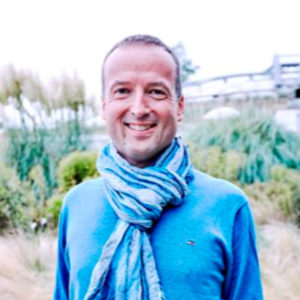 Workshopleitung: Jan Koltermann
Workshopleitung: Jan Koltermann
Jan Kolternmann ist Zertifizierter GWÖ-Referent, -Berater, -Auditor und -Lernwegsanbieter. Er begleitet Transformationsprozesse mit Herz und Haltung.
Schwerpunkt #Gemeinwohlorientiertes Gründen und neues Wirtschaften
Workshop: Finanzierung sozialer Innovationen

Aktuell mangelt es vor allem an ausreichend Kapital zur Pilotierung neuer innovativer Ideen von Gemeinwohlorientierten Unternehmen sowie an Kapital zur Skalierung erfolgreich erprobter Geschäftsmodelle von Gemeinwohlorientierten Unternehmen mit gesellschaftlicher Wirkung. Dies gilt sowohl für gemeinnützige als auch gewerbliche Unternehmen. Im Workshop „Finanzierung sozialer Innovationen“ werden wir aktuelle Finanzierungsherausforderungen von Gemeinwohlorientierten Unternehmen und Sozialen Innovationen in Deutschland sowie konkrete Handlungsempfehlungen diskutieren.
Workshopleitung: Christoph Rohde leitet das Transaktionsmanagement bei FASE und ist seit mehr als 10 Jahren in den Bereichen Sozialunternehmertum und Impact Investments aktiv. FASE ist der führende Impact Finance Berater in Europa. FASE mobilisiert Kapital für Impact-Unternehmen, um deren gesellschaftliche Wirkung zu skalieren. Mit einem starken Netzwerk, innovativen Finanzierungsmodellen und umfassender Expertise verbinden sie Unternehmer:innen mit passenden Investor:innen. In mehr als 100 Transaktionen hat FASE mehr als 85 Millionen EUR für mehr Impact mobilisiert und ist der Co-Initiator des European Social Innovation and Impact Fund (ESIIF).
Schwerpunkt # Empowerment für eine aktive Bürgerschaft und Zivilgesellschaft
Offener Austausch: Theorie trifft auf Praxis – Was Makerhubs wirklich brauchen und wie wir sie dabei unterstützen können
Makerhubs als kreative Kollisionsräume. Die Makerhubs wollen Brücken schlagen zwischen kreativen Macher:innen, Kunst, Wirtschaft und dem Tourismus – und stoßen damit in der Praxis immer wieder auf ungeahnte Probleme. Dabei sind es nicht die Menschen, sondern oft die Strukturen, die das “einfach Machen” erschweren. Gemeinsam mit euch wollen wir im 2025+ Visions-Workshop die Hemmnisse clustern und bahnbrechende Ideen sammeln, wie ein effektives Empowerment der Akteure aussehen kann.
In den neun Makerhubs der Kulturhauptstadt Europas Chemnitz 2025 treffen Gestalter:innen, Handwerker:innen, Unternehmer:innen, der Fachkräftenachwuchs von morgen und Macher:innen aus Europa aufeinander, um voneinander zu lernen und gemeinsam Neues zu erschaffen. Sie sind die kreativen Kollisionsräume der Region – sie sind Orte der Begegnung, des gemeinsamen Austausches, Experimentierens und Produzierens – angepasst an die jeweilige regionale Identität und die Gemeinschaft, die sie trägt.
 Workshopleiterin: Laura Tzschätzsch
Workshopleiterin: Laura Tzschätzsch
Die neun Makerhubs sind Teil des Chemnitz-2025-Hauptprojekts Makers, Business & Arts, das vom Landesverband der Kultur- und Kreativwirtschaft Sachsen e.V. mit Fördermitteln der Kulturhauptstadt Europas Chemnitz 2025 gGmbH durchgeführt wird. Laura Tzschätzsch ist Netzwerkmanagerin für die Makerhubs von Chemnitz 2025. Coaching, Mentoring und Vernetzung sind ihre wichtigsten Aufgabengebiete. Im Workshopvwird sie unterstützt durch die erfahrene Projektmanagerin Stefanie Abelmann, ebenfalls im Team des Makers, Business & Arts Hauptprojektes.

Auf ein Original-Salzwedler-Bürgermeisterbier mit…
Sie haben ein eigenes Thema, das Ihnen wichtig ist? Oder möchten spontan ein Thema aus den Praxisreisen vertiefen? Dann laden Sie doch in unserer Kombüse zu einem offenen Austausch auf eine Getränkeslänge ein – neben dem selbstgebrauten Bier unsere Salzwedeler-Praxisreise kann natürlich auch eine Brause, Kaffee oder Tee sein.
english version
Conference of the Kulturhanse Laboratories
Programme
On May 15 2025, the Kulturhanse will set sail again in Chemnitz, this year’s European Capital of Culture. As an association of laboratories for the common good beyond the big cities, we invite you to the second Kulturhanse conference at the Stadtwirtschaft. We look forward to setting sail with you.
We are organising the event with accessibility in mind: the entire location is wheelchair accessible. Please let us know when you register if you require assistance. Some parts of the programme will be in English. We offer whispered translations for this. When it comes to catering, we attach great importance to vegan meals as well as regional and organic products.

Running Order & Programme
9.30 Embarkation and fishing for a drink
10.00 All on deck. Welcome and get to know the Kulturhanse
10.30 Setting sail. Voyages to six national and international hubs
12.00 Lunch in the cabin
13.00 Quiz
13.30 Workshops in the machine room
15.30 Cake in the cabin
15.45 Raising treasures together
17.00 Departure and end
Invitation on the evening prior
Walking tour with the Dezentrale: „Living and working together at Chemnitzer Brühl“
Chemnitz’s Brühlviertel is a classic Wilhelminian-style suburb that took over some of the functions of the city centre in the 1970s and 1980s. After two decades of decline following the fall of the Berlin Wall, it has been developed in recent years into a kind of ‘trendy district’ or creative and student quarter not far from Chemnitz University of Technology. Since around 2010, a series of communal housing projects and workspaces for the creative industries, often organised as associations or small cooperatives, have sprung up to the left and right of the Brühl shopping street. These include the Brühlpioniere eG, the 7300³ eG with the gallery and agency Rebel Art, the Projekthaus Brühl 71 and the Musikkombinatin in the former Karl Liebknecht School.
We will round off the evening together from around 8 pm in the Syrian bistro Yasmin, Straße der Nationen 35a. So if you’re coming to Chemnitz a little later, feel free to drop by.
To get in the mood for the tour, take a look at this current report from ‘Volle Kanne’ on ZDF from 12 March 2025 (from min.30): https://www.zdf.de/gesellschaft/volle-kanne/volle-kanne-vom-12-maerz-2025-mit-ben-muenchow-100.html
Set sail
Practical Tours
Which start-up ideas contribute to a more liveable environment?What does a community-orientated ecosystem look like and how can it be built?
How can vacancies be used to make your own neighbourhood more attractive?
How should places be organised so that low-threshold encounters and exchanges are possible again? How can the dwindling active civil society be strengthened?
How do you manage to mobilise a tailwind from the largest possible alliance of different shareholders from politics, business, administration and institutions?
. You will travel to two of six exemplary national and international hubs, which will address one of the following topics from their unique, local perspective.
. You can choose one of these exciting topics: founding for the common good, revitalising vacancies as a turning point, low-threshold meeting places for more togetherness, building ecosystems for the common good, empowerment for more civil society, cross-departmental support.
Gründungsgarage Chemnitz (Kulturhanse)
From doing to founding. The Gründungsgarage is a driving force for social entrepreneurship and aims to stimulate dialogue through creative and collaborative impulses. We want to transform the maker spirit of the Chemnitz region into start-up energy and accompany people on their way to becoming social entrepreneurs.

#Topic 1: Building local and regional ecosystems for the common good
We are driving forward an ecosystem for the common good in Chemnitz! With our scholarship programme, events and strong networks, we support social entrepreneurs, connect them with business, science and society and bring their ideas to the world.
#Topic 2: Empowerment for active citizenship and civil society
We strengthen civil society in Chemnitz with participatory formats such as panel discussions, workshops and network meetings! We bring committed people together, promote dialogue and make their commitment visible.
Angerwerk Angermünde (Kulturhanse)
AngerWERK is a centre for start-ups, transformation and engagement in Angermünde. We support entrepreneurship for the common good and alternative economic approaches, network stakeholders and offer spaces, advice and events for social innovation.

#Topic 1: Founding for the common good and a new economy
We promote start-ups that focus on the common good and sustainable business practices. We also see entrepreneurial thinking and action at the intersection between business and the common good as an opportunity and driver of innovation for the region. We provide space and support for sustainable ideas.
#Topic 2: Interdepartmental support
Social innovations for a good local life do not come about alone – they require joint commitment. We bring together stakeholders from business, civil society and administration to develop solutions for social challenges and get them off the ground.
Silicon Vilstal
Silicon Vilstal is an initiative from Lower Bavaria that promotes social innovation in rural areas – with festivals, real-world laboratories, educational formats and creative activities, locally rooted and internationally connected. Photo: Matthias Ammer

#Topic 1: Founding for the common good and a new economy
We promote entrepreneurship for the common good with practical formats such as hackathons, real-world labs and a strong network of start-ups, municipalities and creative minds.
#Topic 2: Building local and regional ecosystems for the common good
Silicon Vilstal connects regional and international players in order to jointly test and structurally anchor social innovations – locally and throughout Europe.
Kultur-Nische Salzwedel
As diverse as the collectible cups in the kitchen cupboard: despite all their differences, the people in the Kultur-Nische always sit down together and look for common ground. The Kultur-Nische is a listed ensemble of houses in Salzwedel, which has been renovated and maintained by an association of the same name with around 40 members since 2009.
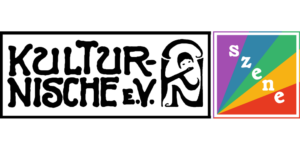
#Topic 1: Tackling local and regional challenges together at low-threshold meeting places
Founded in February 2009 as a traditional heritage preservation organisation, the Kultur-Nische has developed into an important third place in the Altmark town over the last 16 years, where people of different origins, ages, backgrounds and lifestyles come together.
#Topic 2: Empowerment for active citizenship and civil society
The fact that the association provides other initiatives and groups with work, meeting or assembly rooms is explicitly stated in the statutes as a further purpose of the association.
STRAZE Greifswald
The STRAZE is a special place in Western Pomerania. A free space, where many things are possible, for which there has been no space for a long time: lavish parties in the historic ballroom, workshops, theatre, arthouse cinema, political education, music, trying out handicrafts, fair coffee and support for a thousand other ideas. Picture: Thorsten Wagner

#Topic 1: Vacancy revitalization as a turning point
The STRAZE is located in a historic building that had fallen into disrepair and was up for sale in 2007. Years of commitment ensured that the STRAZE passed into charitable hands in 2013 and was preserved as a monument.
#Topic 2: Tackling local and regional challenges together at low-threshold meeting places
The STRAZE offers space for culture, engagement and encounters for everyone. Whether nature conservation, education, culture or social issues – 30 civil society groups are regularly here. There are open workshops, regular meetings and a café.
Appenninol'Hub Italy
Specialized and widespread incubator in accompanying Community Development, Human Capital and new Entrepreneurship, in the Inner and Fragile Areas of the country

#Topic 1: Vacancy revitalization as a turning point
We empower communities & social enterprises in Italy’s inner areas, fostering regeneration, innovation & sustainable local development
#Topic 2: Interdepartmental support
We facilitate enhancing local entrepreneurial skills and encouraging collaboration with 100 partners and investors based in our region and all around Italy, ensuring long-term positive business and social impact.
Set sail
Workshops in the Machine Room
A total of 18 workshops (2x slots in 9 rooms) will be available for discussion in the afternoon. In addition to already curated workshops, we look forward to your contributions. You can suggest these when you register or directly during the conference. You determine the format and topic:
. Workshop. A classic, interactive format in which 45/90 min. are structured and designed in advance, there is a process guide or discussion guide.
. Open exchange. By open dialogue, we mean a less structured, open-ended format. In a trusting discussion atmosphere, a question with the necessary context is posed to the group, which then simply associates openly and feeds in its experiences.
. Collegial consultation. This means that a case provider gives a specific, local challenge, a so-called case, to the group of participants, who then develop specific, individual solutions for this particular issue. This means that only one specific topic can be dealt with.
- The Kulturhanse position paper critically examined
- How can the Kulturhanse position paper be successfully implemented strategically?
- Dignity as an innovative model for the development of peripheral locations
- Financing social innovations
- Networking for impulse locations
- Living and working in the periphery
- Fostering new local economies in peripheral areas
- Seaman's yarn in the galley
- Makerhubs Chemnitz (inquired)
- Threats of de-democratisation for social renewal
all Topics
Workshop: The Kulturhanse position paper examined critically

The position paper contains situation descriptions of meeting places and social-innovative laboratories in rural eastern Germany. We also formulate proposals on how their framework conditions can be improved. In the workshop, we will subject the paper to a critical review: Is there evidence from practice and theory for the descriptions? Can the implementation of the demands lead to improvements?
Workshop leader: uliane Döschner (Kulturhanse) is co-founder and partner of Wandelwerft GmbH, project manager at Plattform e.V. and teaches political science at the FernUniversität in Hagen. Juliane has been on board since Kulturhanse set sail in 2018.
all Topics
Collegial consultation: How can the Kulturhanse position paper be successfully implemented strategically?
In this workshop, we as culture workers will become case-makers ourselves. The position paper is now written. How can the political demands it contains be successfully communicated to the relevant people and committees? In this collegial consultation, we as Kulurhansler become the case givers ourselves. And you are the experts who advise us on the questions: Which strategies are the most suitable for the position paper?
Babara Foerster, author of the position paper: Culture and urban development position paper of the North Rhine-Westphalia Association of Cities and Towns. In it, she argues in favour of culture and third places as an essential component of urban development.
Topic #
Workshop: Findings from the FH Erfurt research project “peripher – From theory to social innovation: Dignity as an innovative model for the development of peripheral places”
Workshop leader: Prof.in Dr. phil. Katrin Großmann
More Information: http://fh-erfurt.de/projekte/peripher
Topic #Founding for the common good and a new economy
Workshop: Financing social innovations

There is currently a lack of sufficient capital for piloting new innovative ideas from companies that are oriented towards the common good, as well as a lack of capital for scaling up successfully tested business models from companies that are oriented towards the common good and have a social impact. This applies to both non-profit and commercial companies. In the workshop ‘Financing social innovations’, we will discuss current financing challenges of socially oriented enterprises and social innovations in Germany as well as concrete recommendations for action.
Workshop leader: Christoph Rohde is head of transaction management at FASE and has been active in the fields of social entrepreneurship and impact investments for more than 10 years. FASE is the leading impact finance advisor in Europe. FASE mobilises capital for impact companies to scale their social impact. With a strong network, innovative financing models and comprehensive expertise, they connect entrepreneurs with suitable investors. In more than 100 transactions, FASE has mobilised more than EUR 85 million for more impact and is the co-initiator of the European Social Innovation and Impact Fund (ESIIF).
Topics #How do you organise cross-departmental support for places of social innovation/vitalisation of vacancies/promotion of social entrepreneurial thinking and action/activation of citizenship?
Open Exchange: Networking for impulse locations
Impulse locations develop vacant properties into places for communal living and working. They are practical laboratories for social change in the countryside and often also locations for social enterprises. Their development and operation are complex and challenging. In the workshop, we will share experiences and discuss how networking contributes to success and what further support is needed.
Workshop leader: Anne Kruse (Netzwerk Zukunftsorte e.V.)
More information: The Netzwerk Zukunftsorte was founded in 2020 to connect and support creative makers of rural future places and to create more open places. Today, we are a lively community of initiatives, associations, experts, politicians and administrators.
Topic #Founding for the common good and a new economy
Living and working together in the countryside
When people move from the big city to the suburbs or ‘really to the countryside’ or want to stay there, they often not only want to live there communally, but also to earn a living and contribute to the new neighbourhood with (socio-)cultural activities. Residential use usually forms the financial backbone that makes other uses possible in the first place, but can also lead to conflicts. The workshop will address some of these conflicts and present possible solutions for choosing the right property, the appropriate legal form, financing and general organisation.
Workshop leader: Roman Grabolle (Dezentrale)
Topics #Interdepartmental support, Founding for the common good and a new economy, Building local and regional ecosystems for the common good
Workshop: Fostering new local economies in peripheral areas

How can creative hubs and community-driven spaces foster new local economies in peripheral areas? The workshop will explore practical tools and case studies from Italy, focusing on how local entrepreneurship, regenerated spaces, and social innovation can become drivers for sustainable development and active citizenship.
Workshop leader: Ronnie Garattoni is a mentor and community designer supporting start-ups and new entrepreneurship in fragile and inner areas of Italy. As a co-founder of a Creative Hub, he designs programs for business incubation, local development and social innovation. His work connects emerging talents with local communities, fostering new economies and collaborative ecosystems. He is also a lecturer in entrepreneurship and innovation at universities and business schools.

For and Original-Salzwedler-Bürgermeister beer with…
Do you have a topic of your own that is important to you? Or would you like to spontaneously expand on a topic from the practical trips? Then why not invite us to our galley for an open exchange over a drink – in addition to the home-brewed beer from our Salzwedel practice trip, you can of course also enjoy a fizzy drink, coffee or tea.
Topic #Vacancy revitalisation as a turning point
tba.
Schwerpunkte #Gemeinwohlorientiertes Gründen und neues Wirtschaften, Gemeinwohlorientierte Ökosysteme
Threats of de-democratisation for social renewal
Our workshop first presents the pathway of Hungarian de-democratisation calling attention to social and political pitfalls and risks that contributed to the strengthening of right-wing, conservative discourses and policies in Hungary. In the second part of our workshop, we discuss these processes through the first-hand experiences of one prominent Hungarian NGO engaged in social innovation. Impact Hub Budapest provides a home for a diverse community and supports positive social change. We are change makers as we work for a better world, bridging ideas building impact. But how it can be done? We show some practical cases of how we can empower youth and women, even in the country side, in rural areas.
Workshopleader: Judit Keller & Beatrix Bedo
 Judit Keller, PhD, sociologist, Senior Research Fellow at the HUN-REN Centre for Economic and Regional Studies in Budapest and project leader at the Zentrum für Soziale Innovation (ZSI) in Vienna. Her research focuses on social integration, policies related to marginalisation, territorial cohesion amidst state transformation in Central and Eastern Europe.
Judit Keller, PhD, sociologist, Senior Research Fellow at the HUN-REN Centre for Economic and Regional Studies in Budapest and project leader at the Zentrum für Soziale Innovation (ZSI) in Vienna. Her research focuses on social integration, policies related to marginalisation, territorial cohesion amidst state transformation in Central and Eastern Europe.

Beatrix Bedo, the director of the Foundation for Sustainable Entreprises and the CEO, Co-Founder of Impact Hub Budapest. Experienced in leading project based social teams, launching companies, stating risk areas and overviewing the operation of various organizations. Good in combining structured thinking with entrepreneurial ’get-it-done’ approach. She is the lead mentor and trainer in the Foundation of Impact Hub Budapest for several incubations, acceleration programs since 2015.
